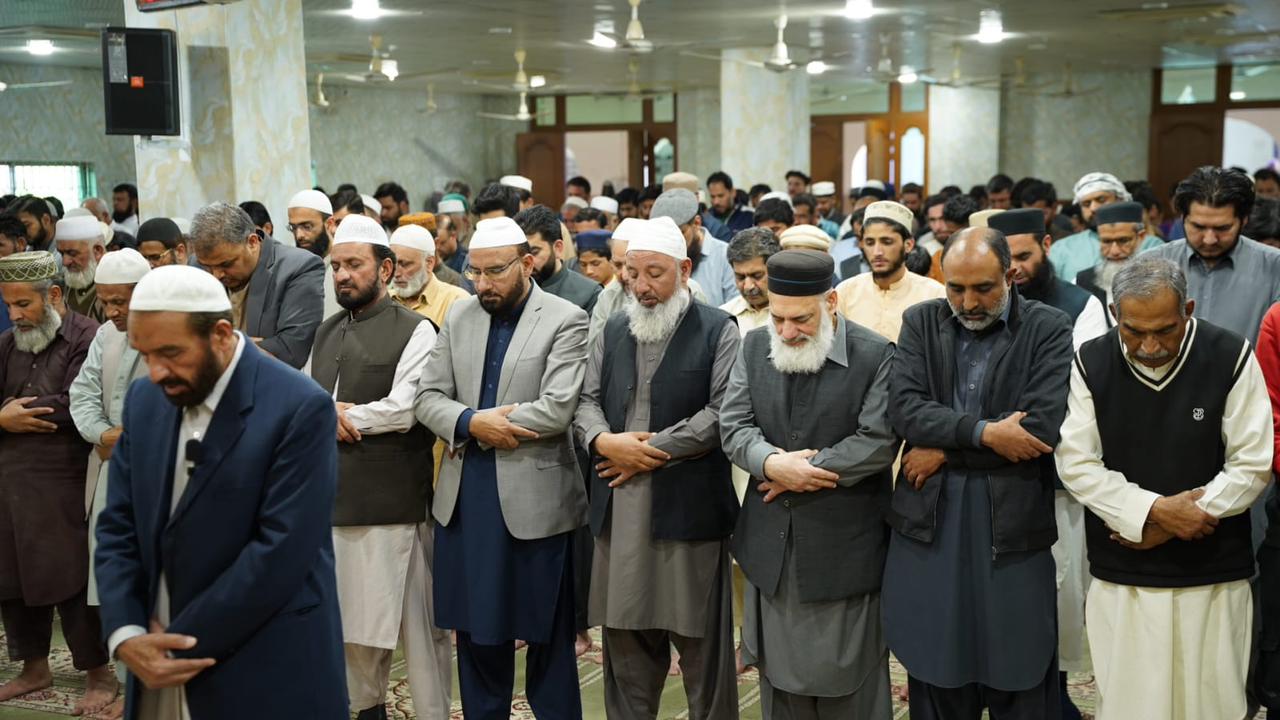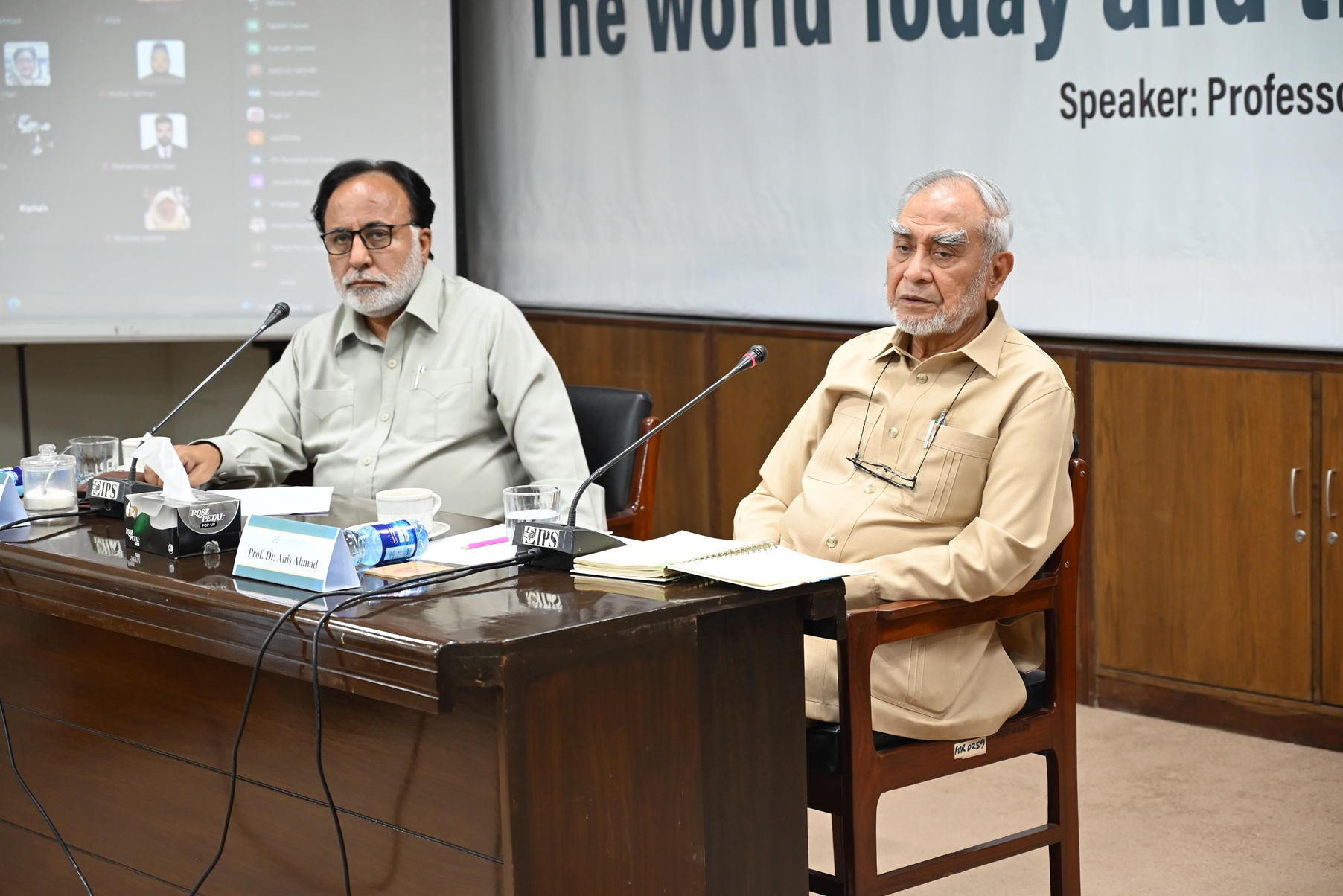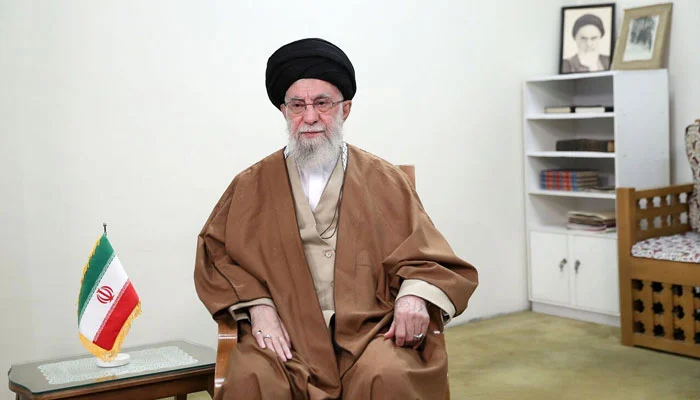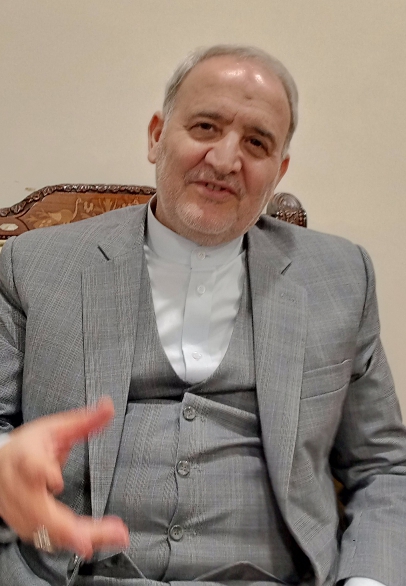Muslim youth must reconnect with their intellectual and spiritual heritage and find a path to the collective well-being of humanity. Only a generation that is filled with purpose, determination and a sense of responsibility can present an alternative system to save humanity. This message was conveyed by eminent scholar, sociologist and Vice Chancellor of Rifaa International University, Prof. Dr. Anis Ahmed during a lecture at the Institute of Policy Studies (IPS) in Islamabad. The program was organized in collaboration with the Markfield Institute of Higher Education, UK, and the International Institute of Muslim Unity, International Islamic University Malaysia. This was the second lecture in the ongoing series titled ‘Today’s World and the Future of Humanity’, which was titled ‘Issues Facing Human Civilization’. The session was moderated by Prof. Dr. Mustafa Ahmed Alvi, while Prof. Dr. Hazizan Muhammad Noon from International Islamic University Malaysia participated in the discussion. Several scholars and students from all over the world participated in the online session. The lecture highlighted the serious problems facing human civilization. Dr. Anis Ahmed said that to properly understand these problems, it is necessary to critically examine the evolution of Western modernity, which has shaped the worldview in the past centuries. The dualistic thinking that emerged from the experience of the European church has changed the very concept of being human. Mechanized life has deprived the individual and society of the higher goals of life, while selfish individualism has destroyed the family structure and distorted the social fabric. He said that modern civilization is suffering from moral decline, extreme individualism and loss of direction, which are actually symptoms of a deep spiritual and social crisis. The concepts of mechanized life and artificial identity are indicative of a dangerous deviation from natural and divine principles. Dr. Anis emphasized that Islam, as a complete and eternal system of life, offers a comprehensive vision to meet these challenges through the Quran and Sunnah. Islam provides solutions based not only on beliefs but also on moral principles and objectives based on the Sharia. Muslims must restore intellectual and moral leadership through self-improvement, hard work and practical application of divine guidance. He urged the youth to abandon dependency and passive behavior and play a positive role in every aspect of life in the light of faith. Dr. Anis Ahmed further said that change does not happen overnight. Nations have to work continuously for decades, if not centuries, to bring about change in their societies. To produce a generation that can lead people towards a just and equitable world, Muslims must institutionally promote strong moral values, so that they can exert a moral and intellectual influence on human thought at the global level. He stressed that the focus should be on the quality and purpose of knowledge rather than its quantity. Dr. Hazizan Noon also agreed on the need to promote moral values and a worldview based on spiritual foundations. He particularly stressed the importance of subordinating artificial intelligence (AI) to human reason and moral ideology. He said that the urgent formulation of ethical codes for the use of artificial intelligence in line with Islamic thought is indispensable. Dr. Mustafa Alvi, in his closing remarks, stressed the urgent need for purpose-based and values-based leadership. He stressed the importance of presenting a comprehensive Islamic alternative that harmonizes morality, reason and purpose, while carrying forward the legacy of Muslim scholars. This IPS lecture series is an important platform for critically assessing the global moral and intellectual challenges of the present day and highlighting the role of Islam in shaping a more humane, ethical and spiritual future.

funeral prayer of martyr Seyyed Ali Khamenei was offered in absentia at the Al-Furqan Mosque
Post Views: 12 MIan Munir Ahmed The funeral prayer of martyr Seyyed Ali Khamenei was offered in absentia at the



